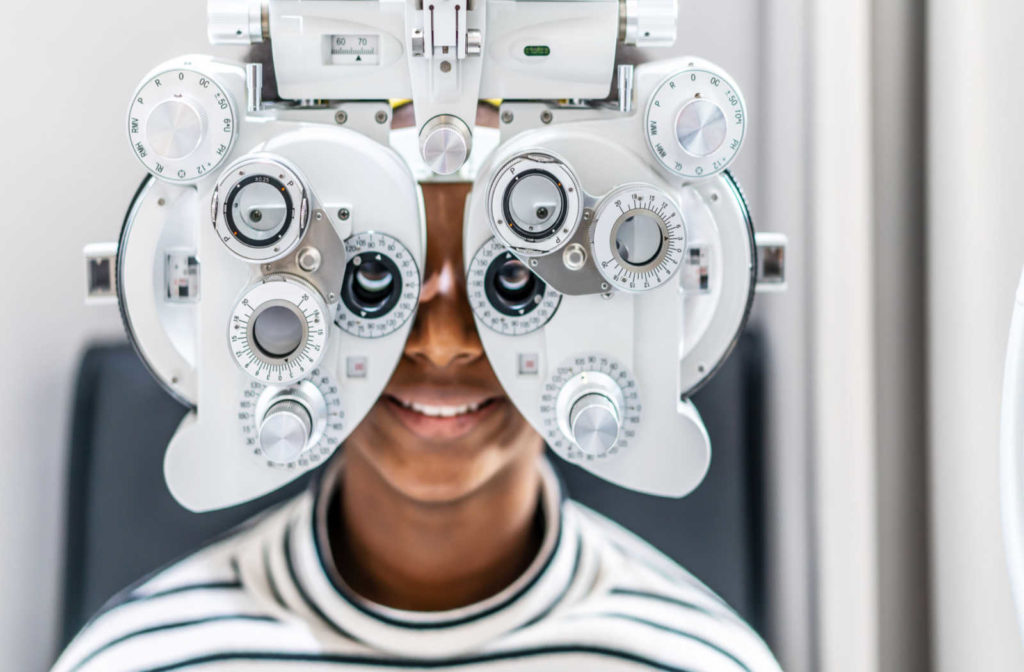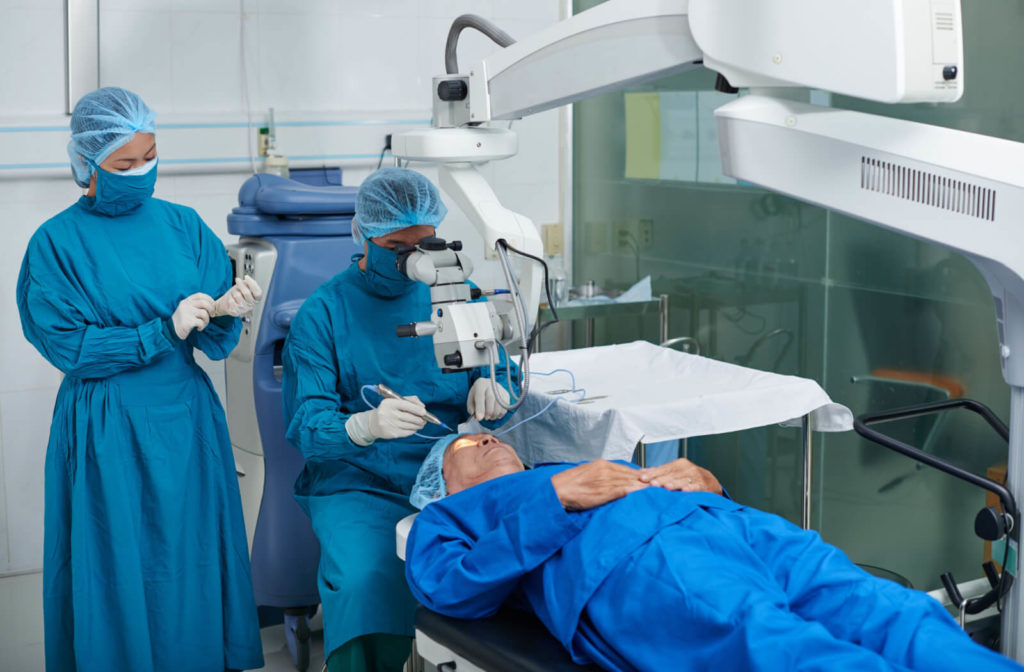Recognizing the Comprehensive Role of an Eye Doctor in Modern Eye Treatment
With developments in modern technology and a boosting emphasis on preventive care, optometrists are essential in detecting and managing chronic eye problems, while likewise engaging in very early condition discovery. Just how do these obligations converge with their duty in advertising overall eye health, and what does this mean for individual results in a joint healthcare environment?
Expanded Range of Technique
In current years, the duty of eye doctors has actually advanced significantly, with many professionals currently welcoming an increased extent of technique that expands past standard eye exams. Their responsibilities currently incorporate a large variety of services, including prescribing medications for eye problems, handling chronic eye illness, and carrying out minor medical treatments.
Additionally, eye doctors are now much more involved in joint treatment, functioning carefully with ophthalmologists, key treatment physicians, and various other medical care experts to ensure all natural individual care. This interprofessional cooperation is critical in handling complex instances that need a multidisciplinary method. In addition, optometrists are playing a pivotal duty in public health and wellness initiatives, such as vision testings and eye wellness education and learning, focused on improving neighborhood health outcomes.
The broadened scope of technique for optometrists not just enhances their capacity to provide thorough care yet also resolves the growing need for easily accessible and efficient eye treatment solutions, contributing to total healthcare renovations.
Early Illness Detection
Early discovery of eye diseases is progressively coming to be a centerpiece in the broadened duty of optometrists. As main eye care service providers, eye doctors are uniquely positioned to determine very early signs of ocular conditions such as glaucoma, macular deterioration, diabetic person retinopathy, and cataracts. This pivotal role is vital, as very early diagnosis can substantially boost the monitoring and prognosis of these conditions, potentially stopping vision loss and boosting person outcomes.
Optometrists utilize detailed eye assessments to identify refined adjustments in vision and eye health. These examinations frequently include evaluations of visual acuity, intraocular pressure, and retinal health. The ability to recognize early indicators of systemic health concerns, such as high blood pressure and diabetes mellitus, via eye indicators additionally emphasizes the value of routine eye examinations. Early intervention is not only advantageous in preserving vision but also in lowering medical care expenses connected with innovative condition therapies.
Furthermore, optometrists play an essential function in patient education and learning, emphasizing the relevance of routine eye examinations as component of overall wellness maintenance. By fostering a positive approach to eye treatment, optometrists add considerably to public wellness, making certain diseases are captured and managed properly before they can advance.
Advanced Diagnostic Techniques
Advanced analysis techniques have transformed the method of optometry, making it possible for experts to detect and keep track of ocular illness with unmatched precision. Technologies such as optical comprehensibility tomography (OCT) give high-resolution, cross-sectional photos of the retina, promoting very early discovery of problems like glaucoma and macular deterioration.
An additional critical development is digital retinal imaging, which captures thorough sights of the retina making use of high-definition cameras. This innovation is crucial in recognizing modifications in retinal structure with time, thus helping in the management of conditions like diabetic retinopathy. Aesthetic area screening, boosted by computer-aided systems, permits exact mapping of an individual's field of view, necessary in tracking and identifying glaucoma progression.
Corneal topography, an additional remarkable analysis tool, generates thorough maps of the cornea's surface area. This is especially useful in fitting contact lenses and intending refractive surgical procedure. These advanced diagnostic strategies collectively enable eye doctors to supply proactive, targeted treatment, ensuring far better individual outcomes and enhancing their essential role in eye wellness administration.
Managing Persistent Eye Conditions
Handling chronic eye problems is a cornerstone of optometric treatment that requires a thorough understanding of various eye diseases and their lasting implications. Eye doctors play a critical duty in monitoring, diagnosing, and handling conditions such as glaucoma, diabetic person retinopathy, and age-related macular deterioration. These conditions, if left unattended, can result in substantial visual disability or loss of sight, highlighting the vital importance of continuous treatment and management.
Optometrists use a range of analysis tools, consisting of optical coherence tomography (OCT), aesthetic field testing, and fundus digital photography, to evaluate the development of these persistent problems. By carefully monitoring modifications in ocular health, optometrists can change treatment strategies to minimize disease development. This may include suggesting drugs, recommending lifestyle adjustments, or collaborating with eye doctors for medical treatments when necessary.

Role in Preventive Treatment
Preventative care is a fundamental aspect of optometry that concentrates on preserving eye health and avoiding the onset of eye illness. Optometrists play a critical duty in early detection and avoidance, employing normal eye assessments to identify threat aspects and subtle adjustments in ocular health. Eye Doctor Optometrist. These assessments are not merely concerning vision adjustment yet why not try these out include a comprehensive analysis of eye functions and frameworks, enabling the recognition of conditions such as glaucoma, cataracts, and macular deterioration at an early stage
Along with diagnostics, optometrists enlighten clients on way of living options that advertise eye health, such as correct nutrition, UV security, and the importance of routine eye exams. They recommend on the right use of digital tools to avoid electronic eye pressure, an expanding worry in the electronic age. Eye doctors likewise offer assistance on safety eyeglasses for work and leisure tasks, mitigating the risk of injury.
Precautionary eye treatment includes systemic health and wellness concerns that show up in the eyes, such as diabetes and hypertension. By teaming up with various other healthcare professionals, optometrists add to all natural person treatment, emphasizing the interconnectedness of systemic and eye wellness. This proactive method is necessary in guarding aesthetic skill and total well-being.
Conclusion
Optometrists now occupy a pivotal role in modern eye care, characterized by an expanded scope that includes diagnosing and taking care of chronic eye conditions, prescribing medications, and performing minor operations (Optometrist Chino). Their knowledge in early disease detection is boosted by innovative analysis methods such as optical coherence tomography and digital retinal imaging. By emphasizing preventive treatment and individual education, optometrists add dramatically to total eye health and wellness, working together with other medical care specialists to make sure extensive and effective client outcomes

In addition to diagnostics, eye doctors educate people on lifestyle selections that promote eye wellness, such as proper nourishment, UV defense, and the value of normal eye check-ups.Preventive eye care extends to systemic health problems that show up in the eyes, such as diabetic issues and high blood pressure.Optometrists now occupy a crucial role in modern-day eye treatment, characterized by a broadened extent that includes identifying and taking care of chronic eye conditions, recommending drugs, and carrying out minor medical treatments.